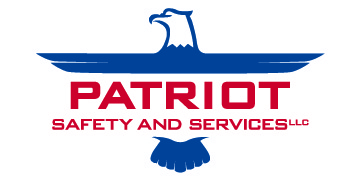Introduction to Background Checks in Today’s Workplace
Background checks have always been about protecting businesses, employees, and customers. In the past, background checks primarily served to verify criminal records or employment history. Today, background checks are much more comprehensive and serve as a foundation of trust in nearly every industry.
With the rise of digital tools, remote hiring, and stricter compliance standards, background checks are no longer optional—they are essential. Employers who implement background checks effectively create safer workplaces, reduce liability, and strengthen their reputation as responsible organizations.
The Expanding Role of Background Checks
Background checks used to focus mainly on criminal history. While this remains a central component, modern background checks now verify identity, education, employment history, financial integrity, driving records, and even global sanctions lists. This expansion reflects the increasing complexity of workforce risk and the demand for greater transparency in hiring.
Background checks today are not just about avoiding negligent hiring—they are about building a smarter, more reliable workforce. Employers who use background checks proactively demonstrate due diligence, which enhances both compliance and organizational credibility.
Background Checks and Digital Transformation
Technology has revolutionized how background checks are conducted. Digital platforms now make it possible to request, track, and receive background check results in real time. Employers can log into secure portals, view candidate data, and maintain audit-ready documentation instantly.
This digital transformation also improves accuracy. Automated systems reduce human error and flag inconsistencies more efficiently than manual reviews. By integrating with HR systems, background checks become part of a seamless onboarding process that speeds up hiring while maintaining compliance.
Why Background Checks Are Crucial for Remote Hiring
The growth of remote work has expanded hiring pools nationally and internationally. With candidates applying from different states or countries, background checks are essential for verifying identity, education, and employment claims.
Background checks help employers confirm that remote employees are trustworthy and legally eligible for work. They also ensure compliance with state-specific regulations, which is especially important when hiring across multiple jurisdictions. In a world where remote work is permanent, background checks provide the verification that keeps distributed teams reliable and secure.
Background Checks and Compliance Management
Regulatory requirements make background checks non-negotiable in many industries. For example, the Department of Transportation mandates background checks that include previous drug and alcohol testing history for safety-sensitive roles. Healthcare, finance, education, and government sectors also require strict screening protocols.
Employers who fail to conduct background checks risk fines, penalties, or loss of operating authority. By integrating background checks into compliance programs, companies demonstrate that they are prepared for audits and inspections at any time.
How Background Checks Reduce Liability
Employers are legally vulnerable when they fail to conduct adequate background checks. If an employee causes harm and it is revealed that the employer did not perform proper screening, negligent hiring claims can follow. These claims can be costly, both financially and reputationally.
Background checks provide a layer of legal protection by documenting that the employer acted responsibly. This reduces exposure to lawsuits and helps employers defend themselves against liability claims.
Building Trust Through Background Checks
Trust is a cornerstone of workplace culture. Employees feel safer when they know their coworkers have been thoroughly vetted through background checks. Customers and clients also gain confidence when they know a company screens its workforce responsibly.
Background checks demonstrate fairness and consistency. When applied uniformly across candidates, background checks eliminate perceptions of bias and reinforce transparency in hiring. This builds trust not only within teams but also across the broader business community.
Background Checks as a Deterrent
The knowledge that background checks are a standard part of hiring deters candidates from falsifying applications or concealing important information. Candidates are less likely to misrepresent themselves when they know background checks will confirm or disprove their claims.
This deterrent effect saves employers time and resources by discouraging unqualified applicants from progressing through the hiring process. It also helps maintain workplace integrity by ensuring only reliable individuals make it into the workforce.
Insurance Considerations and Background Checks
Insurance carriers often evaluate risk management practices when underwriting policies. Employers who conduct background checks consistently are viewed as lower risk and may benefit from reduced premiums.
In the event of a claim, insurers may ask for documentation of background checks as evidence of due diligence. Employers with structured background checks are better positioned to secure favorable insurance terms and defend themselves during claims investigations.
Customizing Background Checks for Industry Needs
Not all background checks are the same. Employers can customize background checks to meet their industry-specific needs. For example, transportation companies often require motor vehicle record checks, while financial institutions may emphasize credit history and fraud prevention.
Customization ensures that background checks are relevant, efficient, and legally compliant. By tailoring screening programs, employers avoid unnecessary delays while ensuring they meet the specific risks of their industry.
Background Checks as Part of Long-Term Risk Management
Background checks should not be seen as a one-time step during hiring. Many companies now use recurring background checks as part of ongoing workforce management. Annual or periodic checks ensure that employees remain compliant and trustworthy throughout their employment.
This long-term approach reduces risk by identifying new issues that may arise after an employee has been hired. By making background checks part of a continuous risk management strategy, companies strengthen organizational resilience.
Future Trends in Background Checks
The future of background checks will be shaped by real-time data integration, artificial intelligence, and evolving legal frameworks. Employers can expect faster results, broader data sources, and more precise reporting.
As privacy laws evolve, background checks will also need to balance thoroughness with fairness. Employers must continue to comply with regulations like the Fair Credit Reporting Act while ensuring candidates are treated consistently and transparently.
Why Background Checks Will Always Be Necessary
Background checks are not just a hiring formality—they are an essential safeguard for businesses, employees, and the public. By verifying identity, history, and qualifications, background checks protect organizations from risk while building trust and accountability.
In the digital age, background checks are evolving into smarter, faster, and more customizable tools. Employers who embrace these innovations will gain stronger compliance, reduced liability, and safer workplaces.
Patriot Safety and Services provides professional, compliant, and efficient background checks tailored to the needs of every industry. With expertise in both DOT-regulated and non-regulated environments, Patriot helps businesses build reliable teams and protect their reputations through thorough and legally sound background checks.





